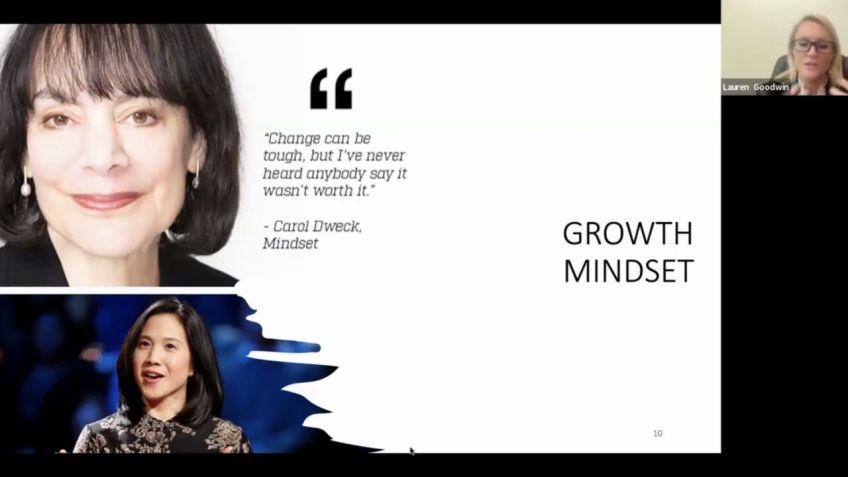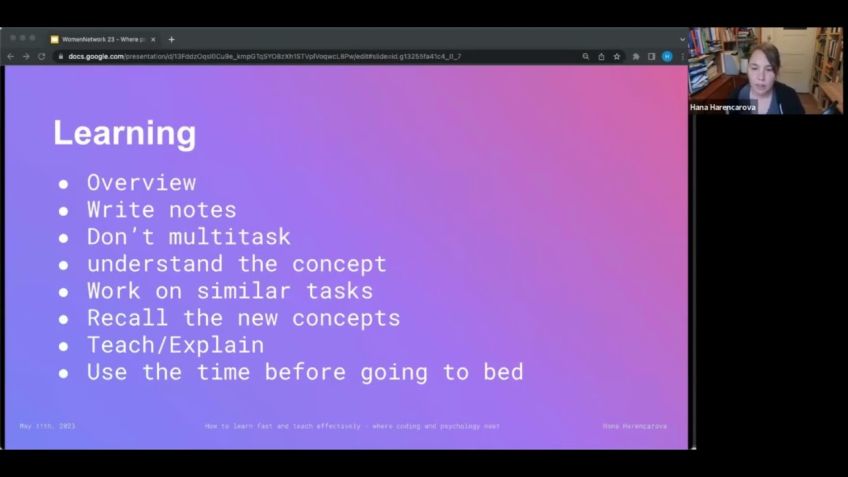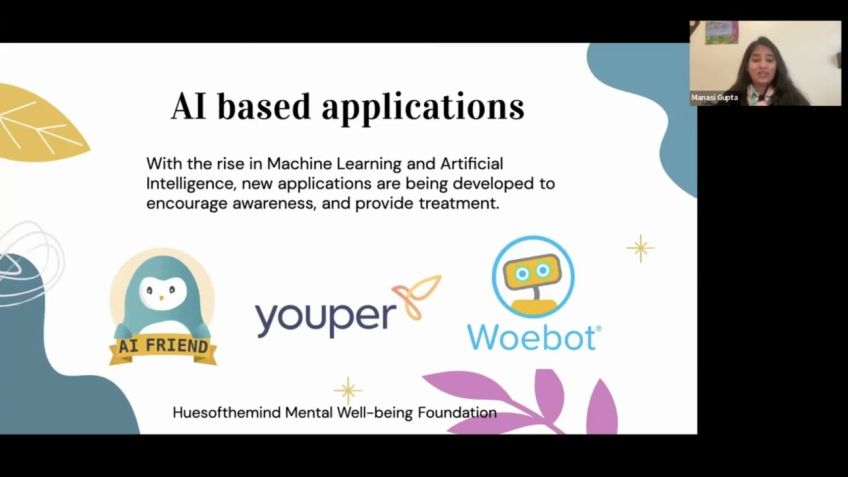Avanti Sharma How a virus is changing our perception of technology
How the Virus Has Changed Our Perception of Technology
Greetings from Luxembourg! Today's topic that we're going to dwell into is how the pandemic has changed our perception of technology. Yes, a virus changed it; but importantly, it taught us quite a few lessons.
About Me
I'm Avanti, a 13-year-old preteen technology specialist at Workshop for Me, a nonprofit organization that strives to teach children from 6 to 16 years old about programming and other technological skills. Our main goal is to transform them into future problem solvers and to encourage more girls and women to venture into technology.
The Pre-Virus World: A Time Before iPads and Laptops
Flash back to before 2014 - a time when classrooms and physical learning were the norm, and Internet was virtually unknown. This format worked great until people started realizing the potential of the Internet in early 2015. A surge in the purchase of tablets, phones, and iPads followed, coupled with a different perception of technology — how else could this brilliant tool of creation be used?
By 2016, ideas of artificial intelligence (AI) and machine learning had started brewing. A humane robot named Sophia was launched, and a year later, she became the first robotic citizen in Saudi Arabia.
Facing the Unknown: The Fear of Technology
Despite these massive strides in technology, fear started creeping into our minds. Would technology take over? Would AI control our brains? In response to these fears, parents restricted their children's access to technology rather than educate them about its prudent use, thus blocking a piece of fascinating innovation.
The Unexpected Catastrophe: The Virus Strikes
Out of the blue, the pandemic hit us with all its force and fury, pushing us from classrooms to homes. Technology, which was feared a while ago, was now our lifeline, our best friend. This jarring shift, triggered by a virus just 0.3 microns in size, led us to unprecedented progress.
The Dual-natured Virus: The Destroyer and the Benefactor
The virus manifests itself in two conflicting ways. It's a destroyer that's caused significant harm but also a benefactor that has dramatically improved our relationship with technology and allowed us to accomplish remarkable things.
Digitalizing Education: A Success Story
The virus made us shift our physical classes for children to the digital platform, integrating tech advances like breakout sessions. It eliminated the hassles of commute for parents and gifted them with more free time. Children started getting better devices because the reliance on technology grew. This forced acceptance of technology improved trust between parents and their kids, and the disquietude about children's internet usage gradually faded.
Webinars: Platforms That Broke Age & Social Barriers
Webinars became popular, breaking social barriers for children. They were no longer the odd ones out in a group filled with adults; they could now join in, learn, and even participate by changing their profiles and voices.
The Benefactor Side of the Virus: A Reduced Carbon Footprint
Another overlooked benefit of the virus is the significant reduction in our industrial footprints. By staying at home and caring for our environment, we are set to meet the 1.5 °C target set by climate experts, something we could accomplish only by cutting down on travel earlier.
Children have more free time to invest in skill development, thanks to online study. And parents need to start trusting their children with responsible internet usage as the current restrictions might lead to unhealthy consumption habits in the future. As for the digital divide, both the parent and the child need to remember to strike a balance between work and entertainment to remain focused.
The Future of AI in a Post-Pandemic World
AI replacing humans for social distancing might seem an attractive proposition, but we are far from achieving fully functional AI. AI in its true sense is yet to be realized, and it might take another 50 years before people might feel comfortable communicating with an AI robot.
In conclusion, the pandemic has changed our perception of technology in unexpected ways. The fear of technology has gradually transformed into acceptance, and it’s heartening to see how we’ve adapted and grown through this journey, turning adversity into opportunity. Technology has become a part of our lives more than ever, and it's daunting and exciting at the same time to think about how far we have come and how far we can go.
Remember, "With great power, comes great responsibility." Let's ensure we harness technology to build a better future for all.
Video Transcription
Hey, everyone. Can you hear me? Yeah. OK. That's perfect. OK. I'm glad that we could uh make it work today. Uh So, uh I just like to say, hey, everyone, greetings from Luxembourg. I know that you are connecting from all over the world.And I think it's such a great community to be in because you get to see so many people and uh you get to be connected without traveling or flying down from somewhere. OK. So I'm gonna start um sharing my screen. OK. So as you guys know, my title of the talk is how the virus has changed our perception of technology. So, hey, everybody, I'm Avanti. I'm 13 years old and I'm the preteen technology specialist at workshop for me. Workshop for me is a nonprofit organization through which we teach Children aged 6 to 16 how to become the problem solvers of the future through programming and other technological skills. And we especially try to promote girls and women to try this as well. So just before the virus hit us, we were all learning in classrooms with individual desks, a pen and paper with us and a physical teacher writing stuff on the white board. Now, this method was great up until late 2014. So what changed? Well, before 2014, no one really knew what the internet was. And not many people actually had a phone or laptop and even if they did, they didn't really know how to use it.
But in early 2015 people started realizing the capabilities of the internet and started buying themselves tablets, phones and ipads. So then they thought, ok, well, we have all of these resources and tools like ipads and laptops. So what more could we do with technology? So they thought of?
Ok, we can do A I and machine learning. And in 2016, Sophia, a humane robot was first launched. I'm sure that you guys have all seen her. And in 2017, she became the first robot citizen in the world of Saudi Arabia. Then we started fearing technology as if they were going to plot against us and control our minds and brains. So therefore our parents didn't allow us to use phones or laptops very much. I have cases with my friends where they are restricted to only two hours per day and parents didn't not teach Children about technology and its uses. Therefore, blocking a piece out. Then suddenly the virus hit us with all its force and all its fury. But did it really come so unexpected to us? Let's see, in 1976 we have outbreak of Ebola in 2003, we had SARS and in 2015, we had MERS and on top of that experts were already saying that there was going to be a pandemic coming sooner than ever. And then the virus hit us with all its fury for, for not accepting technology and rejecting it. After the virus, we quickly moved from working in classrooms to working at home. And now at this time, technology, ipads and phones were all OK. And actually they were becoming our best friend. We went from being afraid of them to being, to loving them with all our hearts. Now, all of this progress was done with just a tiny virus of 0.3 microns.
And on top of that, what comes funny to me is it had no processing power at all. Well, as humans are known as the most uh smart or uh organism living on this earth, an ancient principle from Indian civilization tells us that nature manifests itself in duality in every action and in every creature it is created. Today. The vir shows two of itself a destroyer that and also a benefactor both combined into one. So this is how the virus has changed our perception on technology. And thanks to that, we could do some great things. I told you guys earlier that I was running classes for Children aged 6 to 16, those classes were physical before the virus came along. But now we're doing them all digitally and we're proud to say that now technology has advanced itself so we can use breakout sessions and divide our Children into smaller groups and parents from a long way away could also join in our classes. Parents used to drive 45 minutes one way to our class and then a 45 minute back. Thanks to this. Parents don't also have to wait for their Children to do the class. So they have more free time on their hands.
Children are also getting better devices this way because before parents used to give them their old broken devices, which they didn't use anymore. Now, since parents are buying new ones, Children are getting better ones. Now Children are also getting more internet time and parents are getting more comfortable allowing them to be in the internet and all of this distrust with the parent and the child is all gone. Now, the parent is finally learning to accept and trust the child with their own devices. Additionally, Children can also join webinars and this was great because when I was younger, I used to always go to conferences because of my brother and mom were speaking in them. But there was always kind of this awkward moment because uh adults were in that conference and most was filled with adults. And when they see Children, they think that they've gone to the wrong place. So uh as a child, I noticed that it didn't feel very comfortable to stay in that room because adults keep turning around and checking where the child is. Nowadays, Children can join webinars and if they aren't allowed to, then they can also put a profile picture and change their voice. So let's all try and remember both sides of the virus, the destroyer, which has done a lot of harm in the world.
But also the benefactor which has made us trust technology more and more. The virus also has a different side, which is helping us with the environment. In the past, we used to spend so much money on reducing our industrial footprints, traveling less, telling everyone to consume healthy and so on and so on. But thanks to the virus, it has taught us that if we stay home and be kind to our nature, then we will actually be able to meet the 1.5 °C target set by climate experts today. So thank you. I hope you enjoyed my session and we still have some time left. So I thought it would be great to do A Q and A to have more of a personal view on your back. So, uh if you guys want, you could type your uh questions in the chat and I could see them that way. OK. So uh one question being asked is what would I say to motivate Children to study online? Um This is true. A lot of my uh friends and a lot of Children who I know, don't actually like studying online and they like studying in their classroom because they can spend time with their friends and, um, well, they get to see them and interact with them.
So, what I would say is I would think that, um, if you study online then in the virus, of course, you can't meet your friends. Of course, it's better to stay socially distant. But after the virus passes we are thinking of doing some sessions online. So if that does happen, I would say that if you think about it, if you're studying online, it takes you less time to get to your school and it doesn't take you eight hours every day like it used to. So that way you have a lot more free time and that you can use in whatever skill building you like to do. Suppose you like, um making games, for example, or suppose you like playing basketball, it doesn't matter what you like, but you have more time to progress on that and then you can develop more activities. So I just, I, uh, go to school, I'm a normal school child. I still do my homework and everything. Um, and for me, school days are eight hours long and I study online right now. My school hasn't opened up. So, um, that eight hours is actually being minimized two hours each day. And the crazy fact is I'm actually doing more work than I was in school. So thanks to studying online, we can do more work and also get more free time. Ok.
So uh the next question being asked is how do you think youth can teach us about addressing the digital divide? Ok. Um I am going to look at it in this perspective. I think that um a lot of parents uh are not comfortable with letting their Children on the internet and this is happening because the parents don't have enough trust in their Children that they can handle themselves and that they can, um, be completely appropriate and do the right things.
And I completely understand this fear. A lot of parents have that fear and that's why they restrict their time. So what I would say is actually this, uh, if you restrict your child from doing something, then it actually makes them want to do it more. For example, if you say, ok, don't think of a monkey, the first thing you think of in your mind is to think of a monkey. And once they get that freedom when they turn 18 to do whatever they like, then that's the point where they could start making wrong decisions. But if you teach them early on that, they are responsible enough uh for themselves, then I'm sure that they would use it in the right way. For example, my parents, they don't control my internet access at all, but they trust that, um, I would use it to do the right thing. Like, uh, of course, I can watch youtube and watch Netflix. But I could also use the internet to, for example, learn the piano, learn the guitar, learn how to code all of these different things. So I think that, um, parents should also try a different approach.
It might be scary at first, but, uh, just try it for around a week and then see if there's any improvements. Ok. So uh another question being asked is many parents are facing issues that kids switch to other windows rather than studying online. What would you want to suggest for those kids and parents? So this actually relates into what I was talking about previously as well. Um uh kids switch under other windows and we've actually had this inside our class. We have seen uh in front of our faces that the parents just unlock the Wi Fi code uh right before the session starts in front of our eyes and make sure that the Children is only using it to code. But what I found is those Children, particularly, particularly in class, those Children actually try to play games more than uh studying or doing what they're told. And this happens because uh if you don't have enough trust in the child, then the child uh doesn't have enough trust in himself or herself. And that's why they think that, you know what, it's no point. I don't get enough time to do this anyway, it doesn't matter if I get scolded, it doesn't matter if I don't learn anything. I want to play my game.
So, um, I would definitely say, uh, make your child feel more welcome to technology and that way they'll actually use it for the right thing and the right things which they want to do. Ok. Another thing being asked is what are we going to do to be concentrated when studying online as far as its possibility to do some things in the same time online? Uh Let me just, uh, read that question again. Uh Do you mean like, uh something a little bit like the previous question? So, uh, how do you balance out your schedule of like being online for fun and being online for work? Is that what you mean by that? Ok. So I'll let you answer the chat. I'm gonna go on to the next question. Do you think that people will look forward to replace humans with artificial intelligence for need of social distancing? Um Yeah, this is actually a very debated matter about art, artificial intelligence. But, um, I think personally I've seen Sophia, uh the robot I was just talking about in my presentation. Uh I've seen her and, um, I don't think that someone would want to replace a human with a I quite yet. So you guys will know that A I uh true A I is a very far away. We're just doing machine learning right now. But, uh, I think that no people won't want to look forward to talking with an A I robot anytime soon.
And the reason because of, uh, the reason for that is I've actually read a lot about Sophia and different humanoid robots like this. And actually all the interviews they do is actually all scripted and the interviewer has to talk to that specific question. It can't go off topic.
So, um, that isn't a I at all. Of course, it does have its own, um, its own response mechanism where it can respond to questions where you just ask on the fly. But they don't use that very well because that doesn't work very well. A lot of the time and the robot has a difficulty understanding. So my answer would be no, I don't think that people would look forward to it anytime soon. Maybe in the future. If we advance a lot, then we will. But I don't think for another 50 years it's ever gonna be, um, very close at all. Ok. Uh, ok. So I'm just gonna read the next question. Ok. Ok. So I've understood, um, the question again. Thank you for rephrasing it. What are we going to do to be concentrated when studying online as far as its possibility to do some things in the same time online? So, uh, you also said some windows can be opened at the same time, for example. Yes. Now, um, this is actually um I like this question because it's for Children because they have the same problem, but also a lot of the time for adults now. Um What I like to say is I also work online now, you know, uh as you guys have heard because of my school and uh what I've learned about learning online is it's probably just procrastination that you don't want to do this work or you don't like doing this work.
So I have two solutions to it. Um My first solution is you have to just get it done and then you have to get it out of the way. And then in the evening, what I love to do is I don't do any more work in the evening. I just um I do everything entertaining or fun. Like if you want to watch your favorite TV show, for example, you can do that if you really want to watch, um this game which your favorite basketball player has played. You can watch that in the evening, but you don't have to watch it at the exact same time as you're doing your work. And this um uh can you please type your answer? Yes, I will type it uh just very soon. So, um uh what was I saying? Yes. So, um these things of course, feel free to do them. It's very important to take a break so that you should all do later on after you have finished doing all your work and you just got to get it done. Now, my second thing is some, some days or sometimes you feel so, um, well, you feel so lazy, you feel so bored and you just don't feel like doing the work. You don't have that motivation and you don't have that courage to do that work anymore. Now, in those cases where you're like, ok, I can't even do any more work at those cases. You can take a short break and then you can get back to your work. It is so important to take breaks in the middle of your day.
Uh And the reason for this is because otherwise you aren't enjoying the work that you do, which is uh always not good. And the second thing is even if you do get that work done, it's gonna be very poor quality. So I think that you should get work done and you should also get it done. Well, you know, you shouldn't just do a tech job, you should put all your heart and your mind into it. OK? So I don't see any more questions coming in. Uh Right now. So Oh yeah. And I think that the time is also almost finished. Yeah. OK. Uh So if you want to learn more about uh workshop for me or what we do or how you could contribute, uh contribute to help us learn and teach Children, then you can go on to this website over here and that's my website and that's our website which you can learn to donate or see what we're doing or collaborate with us.
So that's just pasted in the chat right now. OK. So, uh thank you so much guys for joining this session. I hope that you enjoyed it and I hope that you uh enjoy the rest of the sessions too because it's a fully packed and it's a wonderful day right now. So make sure that you connect with different people. Thank you so much. Bye guys.





